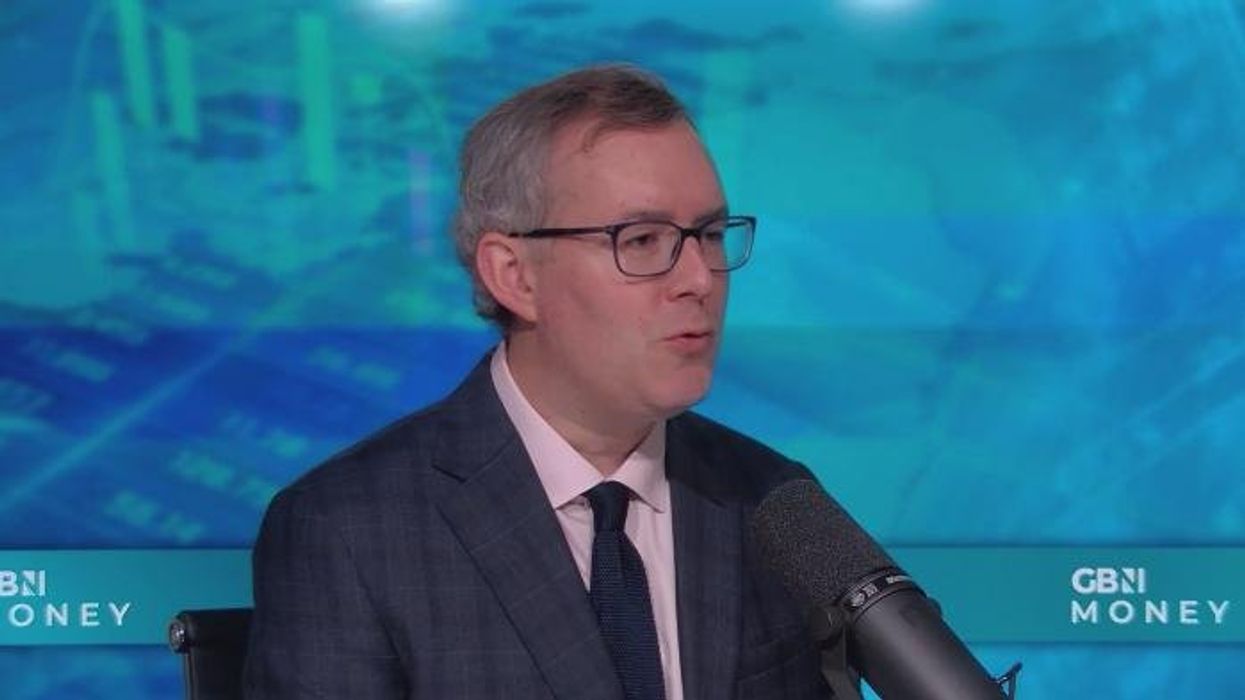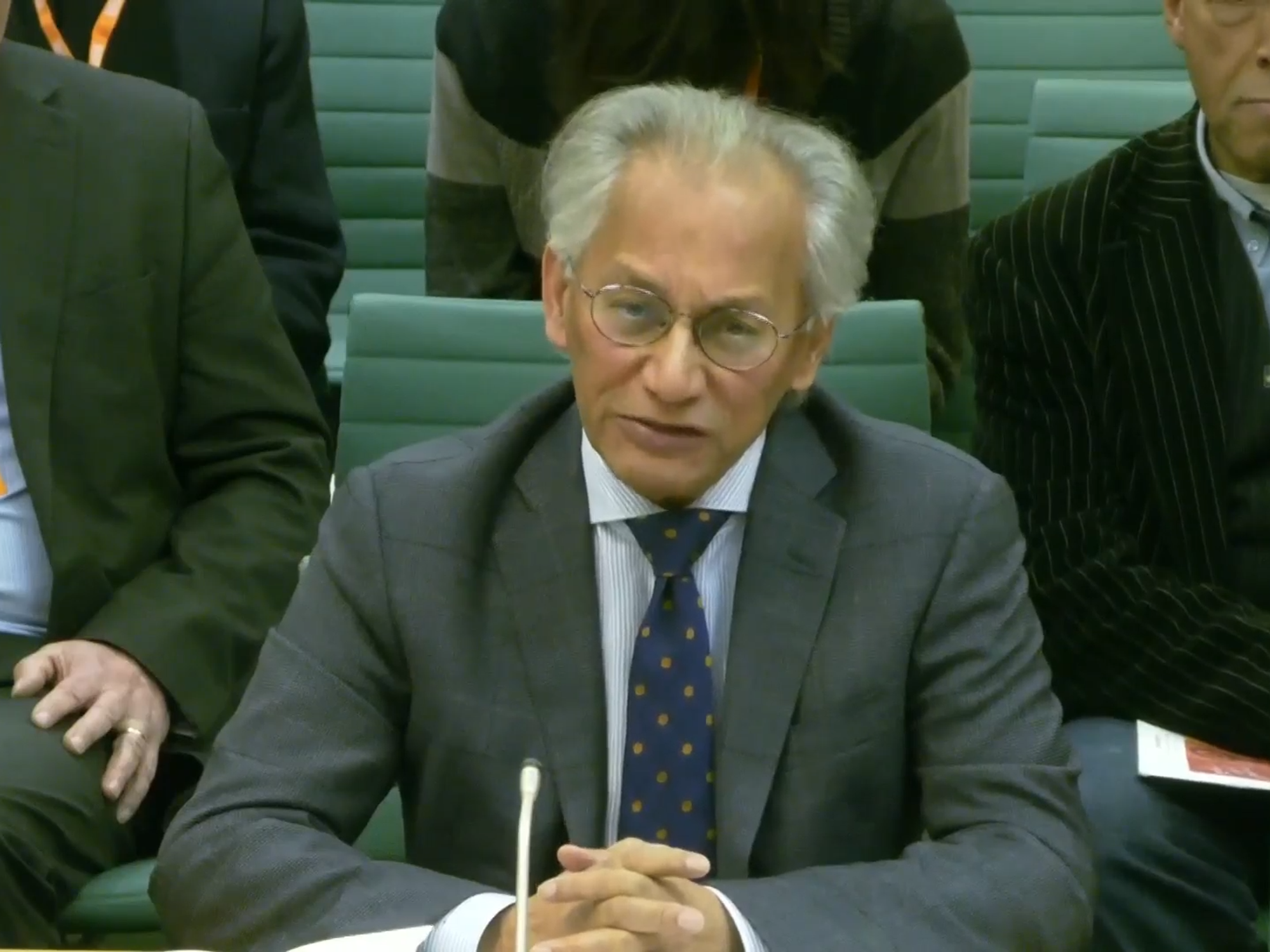Young people's anger is justified. But here's what so many of them get wrong about our pensioners - Renee Hoenderkamp
Maybe it’s time to start asking how we fix the system that’s failing us all, writes celebrity doctor and GB News presenter Renee Hoenderkamp
Don't Miss
Most Read
Trending on GB News
There’s a growing narrative in the UK that pits young people against pensioners — a kind of generational cold war fought on social media, in newspaper comment sections, and at family dinners.
It goes something like this: older people “stole” the housing market, voted for Brexit, and now expect the young to fund their pensions while they sit on paid-off homes and generous benefits.
It’s an easy story to tell, and it scratches a real itch — life is harder for young people than it was for their parents. But blaming pensioners isn’t just lazy; it’s wrong, and it’s making genuine progress harder.
Let’s start with the obvious: the system is broken, not the people. The housing crisis, stagnant wages, underfunded education, and a shredded welfare state aren’t the result of 70-year-olds rubbing their hands together in glee. They’re the outcome of decades of policy decisions alongside a change in attitudes to claiming welfare.
Decisions by governments of all stripes that prioritised short-term growth and asset inflation over long-term fairness along side a change in the relationship between younger people and the state and beliefs around claiming benefit as a last ditch safety net versus a more acceptable thing to do when life gets tough.
Today's pensioners rarely took out of the system via welfare. Today, 52 per cent of working households receive some sort of benefit. Older people may have voted for some of those governments, sure, but many didn’t and most would never have dreamt of turning to state benefits but they did work and pay in. And crucially, the real winners of these policies aren’t “pensioners” as a group — they’re the wealthy few, who benefit from inequality regardless of age.
The idea that pensioners are universally privileged also doesn’t hold up to scrutiny. The image of a comfortable retiree in the Home Counties masks a harsher truth: nearly two million pensioners in the UK live in poverty. Many worked their whole lives in low-paid jobs, with little or no private pension. Others are carers for partners or grandchildren, quietly holding families together because the state can’t or won’t. It’s not exactly a life of luxury.
And let’s not forget the solidarity that does exist between generations — the invisible support that keeps the country running. Millions of grandparents provide free childcare so parents can work. Countless older volunteers prop up charities, food banks, and community groups. The NHS may not survive without retired clinicians returning part-time. These aren’t people hoarding resources; they’re giving back, often more than they can afford to.
But part of the reason so many young people see pensioners as “other” is that the social fabric connecting generations has frayed. The rise of the nuclear family — and the disappearance of extended, multi-generational households — has quietly reshaped British society. Children and young adults today often grow up with little meaningful contact with older relatives beyond the occasional Sunday lunch or Christmas visit. That distance breeds misunderstanding. When you rarely see older people up close, when you don’t hear their stories, see their struggles, or learn from their experience, it’s easier to reduce them to caricatures. The result is a loss of empathy, and with it, a loss of appreciation for the wisdom, resilience, and quiet hardship that many pensioners carry.
That said, it’s worth acknowledging that the younger generation isn’t without its own blind spots. Around 14 per cent of 18–24-year-olds in the UK are currently not in work, education, or training; a level that would have been almost unthinkable for most of today’s pensioners when they were that age. Back then, full employment and vocational routes were the norm, not the exception. Of course, today’s economy is far tougher and opportunities fewer, but it’s still fair to say that some introspection is needed.
If more young people were working and contributing taxes, it would help to fund the very system, including the state pension and the triple lock, that so many resent. In other words, the generational contract only works if everyone plays their part just as today's pensioners did for those above them, without question, because they knew their turn would come.
That’s not to say young people’s anger is misplaced. It’s often justified. They’ve been dealt a rough hand: sky-high rents, home ownership a distant dream, insecure work, and a political system that too often treats them as an afterthought. But turning that anger on pensioners is like shouting at your grandparents because the bus is late. The problem isn’t them, it’s the bus company, the transport budget, the government that cut services.
What would actually help is cross-generational solidarity. Recognising that both the young and the old are getting squeezed, just in different ways. The cost-of-living crisis doesn’t care how old you are. The NHS backlog affects everyone. The housing market punishes first-time buyers, but it also traps elderly homeowners in unsuitable properties because there’s nowhere to downsize to and the stamp duty tax unaffordable.
If young people and pensioners saw each other as allies rather than enemies, they’d be an unstoppable political force. Together, they make up the majority of the population. Imagine that power turned towards fair taxation, proper social housing, investment in care, and policies that treat dignity as a shared right rather than a generational privilege.
The truth is, most pensioners aren’t your enemy. They’re your future. One day, if you’re lucky, you’ll be them, and when that time comes, you’ll hope the next generation sees you as a human being, not a headline.
So maybe it’s time to stop shouting across the divide, and start asking how we fix the system that’s failing us all, and time to respect those who worked hard and paid their taxes on the promise of a pension that they can actually live on and £11,000 a year isn’t that.











